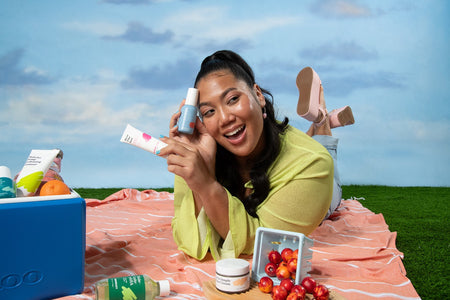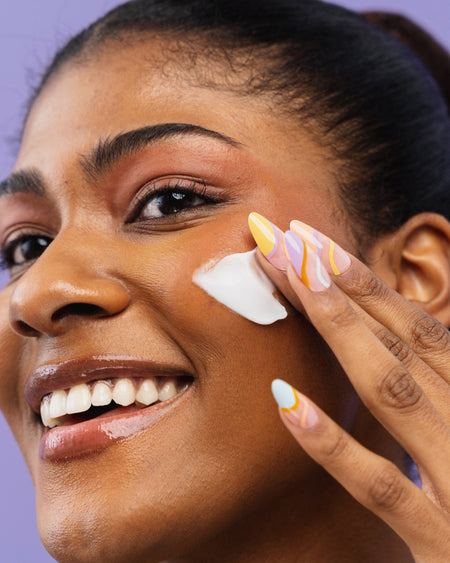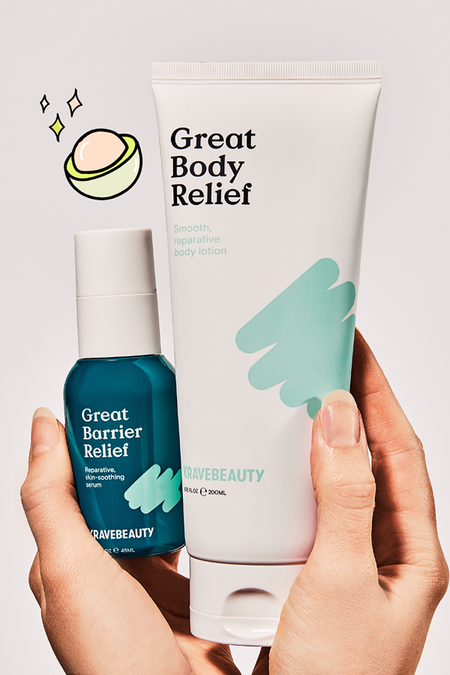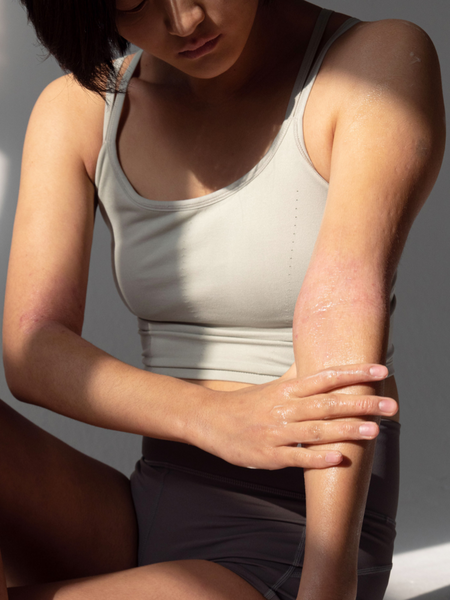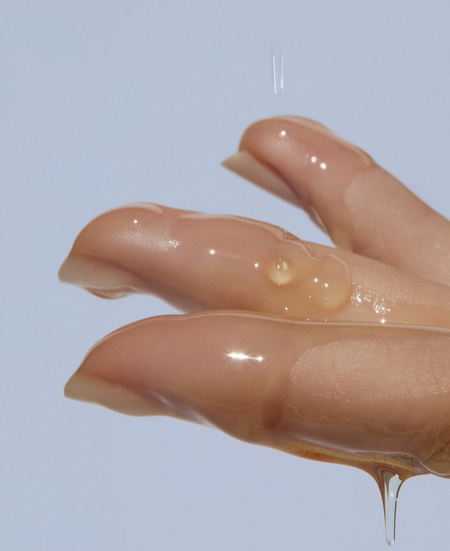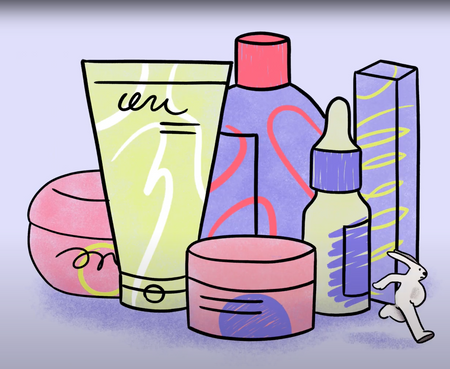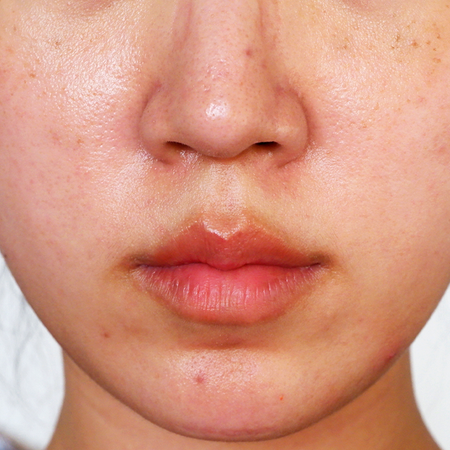Winter Series: What is Eczema?

Does this sound familiar to you?
- The cold winter weather just makes my skin so RED, DRY, and ITCHY.
- The pain is almost unbearable…
- No matter what moisturizing products I apply, my skin just isn’t getting better.
If you checked all of the boxes above, chances are that you’re dealing with a common skin condition known as eczema.
Let’s make sure we’re on the same page here. Eczema is the general name for a group of conditions that make your skin red, itchy, and inflamed. And while it may seem like you’re the only one struggling with it, eczema is actually very common.
Here are the facts:
- 10.1% of the U.S. population is affected by some form of eczema (That’s over 30 million Americans)
- 7.2% of Americans suffer from the main form of eczema known as Atopic Dermatitis. (Over 21 million Americans)
Although so many people deal with eczema on the daily, there’s a huge chunk of the population who still don’t know how to keep it at bay and don’t even realize they have this skin condition at all. So we’re here to equip you with the knowledge you need to treat your skin conditions at their source-- and that means, getting to the bottom of understanding what eczema exactly is and how you can treat it.
The Physical Effects:
On the outside, you can identify eczema by its red-colored scaly, almost crusty-looking plaques that feel insanely dry and itchy. On the inside, eczema is characterized by a severely damaged and malfunctioning skin barrier, along with high levels of inflammation within your skin.
The Emotional Effects:
Medical journals often focus on what physical discomfort eczema causes, but it’s just as important to recognize what mental and emotional hardships that the skin condition causes too. People with eczema not only feel self-conscious about being seen in public with red and flaky patches of skin, but they also have to miss out on the foods and activities they love in order to avoid aggravating their eczema more.
Do’s and Don’ts of Eczema
If eczema is like your personal bully, then the harsh winter weather conditions are like the bully’s posse who exist to make your life even worse. Eczema flares up in the winter not only due to decreased skin moisture levels and a sensitized skin barrier, but also because our skin is exposed to less sun and thus receives less vitamin D, our skin’s natural anti-inflammatory agent (why did you have to end, daylight savings :( ). So for all our eczema and sensitive skin sufferers out there, here’s our simple list of do’s and don’ts for how you can stand up to the winter weather bullies.
DO:
- Take warm, NOT hot showers
- Pat your skin dry with a towel, DON’T RUB
- Moisturize consistently and liberally
- Use fragrance-free, dye-free products
- Know what your skin is triggered by or allergic to and AVOID THEM at all costs
DON’T:
- Stand in a hot steamy shower for 10+ minutes (it feels so good in the moment, but your skin will be crying later)
- Wear scratchy/wool clothing without an additional layer over your skin
- Use abrasive products or devices on the skin (e.g. scrubs, Clarisonic, etc.)
- Use alcohol based hand sanitizers or products (say bye-bye to moisture)
- Scratch your skin (wearing mittens can help against scratching when you’re sleeping)
- Stress! (Our skin’s worst enemy)
Petroleum Jelly Is Your Best Friend
Petrolatum, more commonly known as petroleum jelly, gets a pretty bad rap in the skincare world, but this moisturizing ointment can actually work wonders for soothing eczema. Not only is this wonder jelly dermatologist-trusted to be eczema friendly, but it’s also one of the least irritating ingredients you can apply to your skin.
The real reason why eczema causes stubborn skin inflammation comes back to a common culprit of many of our unfavorable skin conditions: a weakened skin barrier. Essentially, your compromised skin barrier allows your skin’s immune cells to come in contact with the nasty pathogens outside that they’re not meant to interact with. This is where petroleum jelly comes to the rescue by acting as a surrogate barrier between your skin and the outside world, so your immune cells and outside pathogens don’t get involved with each other. So don’t be afraid to slather that jelly on! Additionally, unlike aqueous/gel-based occlusives (like sleeping masks), petroleum jelly will not disrupt your barrier’s lipid organization or increase your skin’s sensitivity.
Work From the Inside
We always like to remind you that our skin is a reflection of our internal health, so we can definitely implement positive lifestyle changes within our bodies to help our skin function at its best. Applying this mindset to eczema, which is largely caused by an overactive immune system, we can holistically lower inflammation in our bodies overall with two classic yet effective methods: nourishing the body from within and getting our beauty sleep. If you need professional medical help to combat an overactive immune system, be sure to seek out a dermatologist to see what your treatment options are.
- Nourish the body with nutrients
A healthy gut acts as our body’s natural bouncer for keeping inflammation out, so make sure to fill your body with the nutrients it needs to do its job! Here are some awesome anti-inflammatory nutrients you can start incorporating into your diet:
- EGCG found in green tea
- omega-3 fatty acids EPA and DHA found in fish oil
- anthocyanins found in berries and grapes
- curcumin from turmeric
- sulforaphane from broccoli, and more
- Vitamin D supplements
- Off to bed!
When you’re running low on sleep, your body’s stress levels will naturally increase and signal your immune system to be on alert mode. But if your immune system is working at 100% at all times, it’ll only a matter of time before it breaks down on you. Make sure to get a good night’s sleep to reduce your overall stress levels, so that your immune system can take a breather and work hard when duty calls.
And that wraps up our breakdown on how to treat your sensitized/eczema skin this winter! Let us know of any other tips and tricks not mentioned here that have helped you deal with hypersensitive skin! Coming up next week, we’re going on an intimate date with our skin barrier to gain a deeper understanding of what makes it tick, and how we can build it back up.
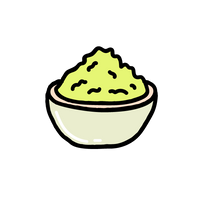 Matcha Hemp Hydrating Cleanser
Matcha Hemp Hydrating Cleanser Oat So Simple Water Cream
Oat So Simple Water Cream Beet The Sun SPF 40 PA+++
Beet The Sun SPF 40 PA+++ Great Barrier Relief
Great Barrier Relief Kale-Lalu-yAHA
Kale-Lalu-yAHA

